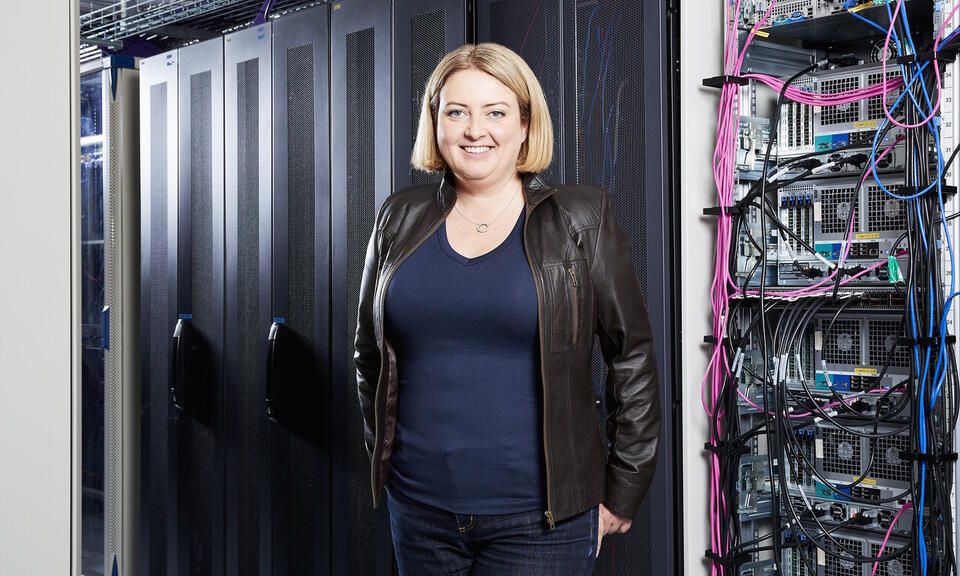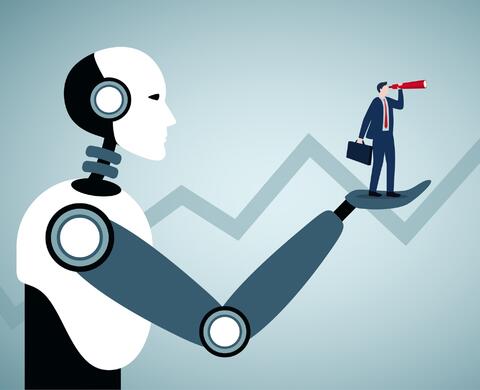
Written by
Published
Category
Key topics
World Economic Forum Fellow and Visiting Lecturer at Imperial Business School Dr Catherine Mulligan explores what AI means for society
A new dawn or the beginning of the end of human civilisation? Artificial intelligence (AI) has been called each of these. And in the months since the AI-powered chatbot ChatGPT was released, it’s been impossible to avoid articles about the technology’s significance and likely impact on our everyday lives, as well as the future of the human species.
Here, World Economic Forum Fellow and Visiting Lecturer at Imperial Business School Dr Catherine Mulligan explores what AI means for society.
1. Some have claimed AI will have a positive impact on areas as varied as wildlife conservation, hate speech and clean energy – is this realistic?
This is not the first time we've heard technology is going to save the world: we saw it with mobile networks, broadband, the Internet of Things and blockchain. Like those, AI is a tool that can be used for good, as well as bad.
However, all digital technologies come with something that we are a little bit less prone to talk about, which is unintended consequences. AI can, and will, help us solve all the issues you mentioned, as long as we remain cognizant of the possible negative side effects – and work to solve them.
2. Where could AI make its greatest positive impact?
In an era of climate change, the greatest thing we can do with AI is reduce humanity’s environmental impact. One way that this can be done is if we use it to remove inefficiencies within industries such as the energy industry. I also believe AI can help us design and deliver more efficient solutions for education, research and industrial structures.
One thing I'm working on a lot at the moment is digital measurement, reporting and verification for carbon markets. I'm looking at how we can measure environmental impact with AI, which is essential because the models are very complex.
We're also seeing AI being used in very large-scale supply chains to reduce environmental impact, as well as to improve systems design. Another area where we’ve seen a lot of developments with machine learning, which will rapidly move into AI, is healthcare.
3. Where do you think AI’s greatest negative impact will be seen?
I'm not the sort of person who’s overwhelmed with the negative side: AI won't kill us unless we let it. Having said that, we're already seeing some of the downsides.
An obvious one is the manipulation of the social digital sphere, with things like deepfakes and the amplification of hate speech. Everyone is concerned about AI ethics, but there’s also a critical discussion to be had about whose ethics will be applied. For example, a lot of this is driven by which countries are developing the technologies, while others, who use the technology, don’t have a huge amount of say in how things are developed and implemented.
There’s a lot to consider including how to protect elections, as well as how to educate people who've never seen a world where these things don't exist. We need to think about how to explain what truth is to the next generation – as a result, AI forces us to think a lot about what truth really is.
4. Should people be worried about their jobs?
We won‘t see it immediately but jobs are going to transform rapidly. For example, you can already use ChatGPT very effectively in education, with AI able to provide a very good summary of different subjects such as leadership literature. What it isn’t able to do is build a curriculum that combines multiple disciplines together and applies them into another area such as sustainable development – yet.
So, while there will be a rapid transformation, there’s still plenty of space for humans, who will be able to evolve their careers by bringing several disciplines together effectively to solve problems – known as “boundary spanning”. This is going to challenge us to think about what it means to be human, including redefining our role in the workplace.
5. Do you think businesses are ready for the downsides of AI?
Yes and no. When you talk to senior executives behind closed doors, they all know what's going to happen as a result of AI. The really good ones will admit this to staff and work to retrain them. When I started working with one company, they had about 7,000 staff running certain parts of their system – that’s now down to 25.
I wouldn't say the business world is entirely ready, but it understands what's coming.
6.In your opinion, how should we be preparing for AI?
We could easily start to replace some of parts of the C-Suite with really good, forward-looking AI, so I think there should be honest discussions at an executive level. In the UK, most executives tend to not have digital experience: CFOs often become CEOs. Companies therefore need to get people with excellent digital expertise into their executive suite and allow them to help cope with developments in AI.
Businesses also need to consider what it means for the average employee, which means asking more than just what can be automated. Again, I think the key issue in the face of AI is boundary spanning: executives who can show they’re incorporating AI into part of their company to open up a new market, or enter adjacent markets for example, will be extremely valuable.
7. Overall, do you feel optimistic about the potential of AI?
I'm very optimistic about the future of technology but I'm increasingly worried about human beings applying it without real depth of thought.
We need to pause and think before we execute some of these digital solutions because it’s critical we get this right. The societal and the environmental implications of what we're doing are crucial – not just for companies – but for every single organisation across the world right now.
This article draws on the theme of Imperial Business School’s Social Impact Day 2023 “AI for Society: A Problem or Solution”. Dr Catherine Mulligan was a panelist at the event.


